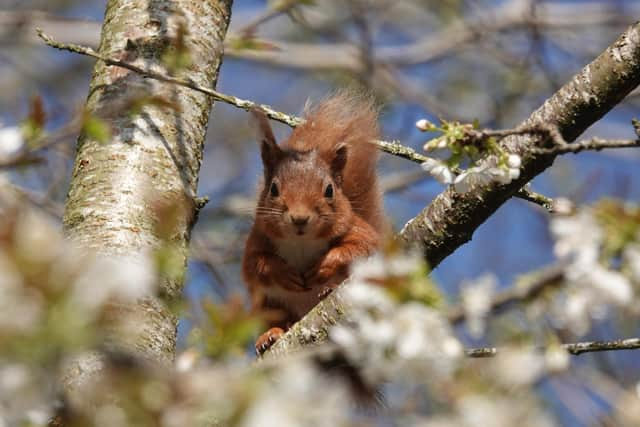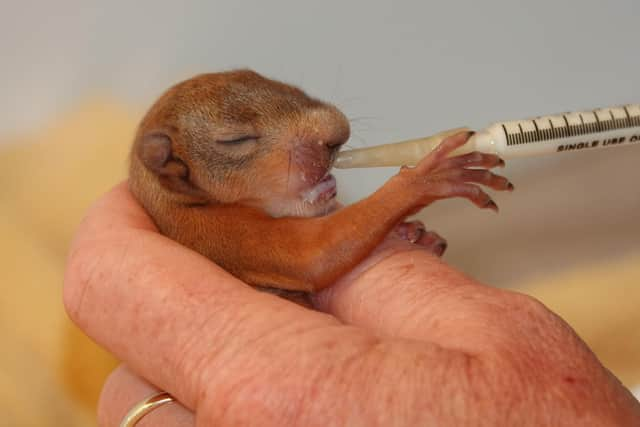Scotland now loves once-persecuted red squirrels but what about the rest of nature? – Polly Pullar


Imagine 100 people together from all walks of life. Ask each their opinions on nature, and you will encounter widely differing agendas.
When it comes to wildlife, we are fickle and like things to slot neatly into categories, boxed-up, causing no trouble and only viewed at our convenience.
Advertisement
Hide AdAdvertisement
Hide AdTake the badger – blamed for just about every evil known to man, though not yet coronavirus. We accuse it of ripping out sheep’s throats yet overlook that more farm livestock are worried and killed by our dogs annually than any fox or badger. Ask for opinions on gulls, ravens, pine martens, even benign bats, and you will get vitriol.
Recently I commented to a friend that I had been relishing the joys of the treasure in our harmless moth trap, “Moths are bad; they eat clothes,” he replied. Of 2,500 species of moth in the UK, only two will munch textiles.
Complex misconception is at the root of most wildlife conflict issues. However, mention the red squirrel, and the faces illuminate. It is on a pedestal, but it was culled in shockingly high numbers until 1981, when it received legal protection under the Wildlife and Countryside Act.
We believed that it decimated trees and dented the wild bird population by eating eggs. We have taken a 360-degree turn, proving that we can change our perceptions. When it comes to predators, be they avian or mammalian, we need to do just that.


Since restoring the habitat on our little farm, the squirrels have returned, and so too have a wealth of other species that all slot together. Scotland holds 70 per cent of the UK red squirrel population, but estimates suggest the overall total is only approximately 140,000.
Habitat shrinks, then like a wool jersey in a boiling hot wash, nothing fits. Red squirrels are also beset by disease carried by the non-native North American grey – a more robust rodent that out-competes the fragile red for a dwindling food source, an imposter here through no fault of its own. Where man meddles, there is always trouble.
Nature is proven to help our general health and well-being but is our newfound love purely skin deep? What do we give back in return?
Globally, Scotland is one of the most nature-depleted countries, yet tourists often flock here for our wildlife – successful misconception at work. We have the chance now to become a shining beacon of hope instead of heading on a downward trajectory.
Advertisement
Hide AdAdvertisement
Hide AdIf the only way forward to tackle the current biodiversity crisis is to give major incentives to work with natural processes, surely no price is high enough.
After another feed, my vulnerable orphan kit settles to sleep. These arboreal athletes are not out of the woods for we hold the future of all living things, in the palms of our hands. Let’s not forget that without nature we are nothing.
Author and naturalist Polly Pullar is at the Fringe by the Sea Festival at North Berwick at 11am, Sunday, August 8
A message from the Editor:
Thank you for reading this article. We're more reliant on your support than ever as the shift in consumer habits brought about by coronavirus impacts our advertisers.
If you haven't already, please consider supporting our trusted, fact-checked journalism by taking out a digital subscription.
Comments
Want to join the conversation? Please or to comment on this article.
